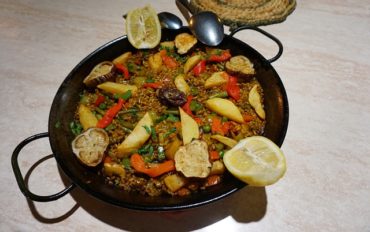
Are you vegetarian, vegan, reducetarian, flexitarian, or planetarian? Because of all the hype around new diets that are better for the planet and our health, the team at Real Foods decided that it was time to give the lowdown, so you can determine the best vegetarian diet for you.
Maybe you think that vegetarianism has only just reached a mainstream audience? In 2015, the celebrity chef and healthy eating campaigner Jamie Oliver publicly declared, “I’m eating meat as little as possible now. I’m nearly vegetarian.”
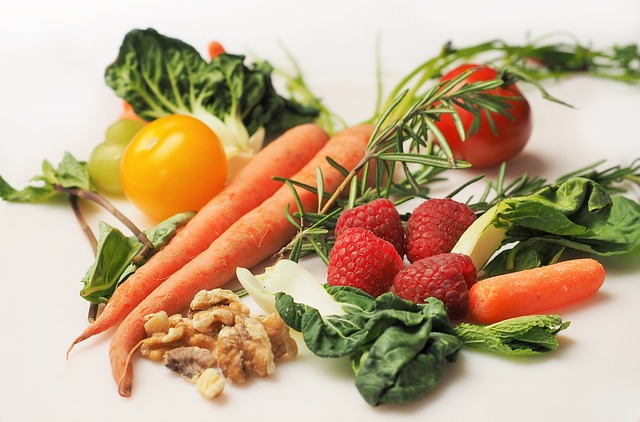
While there are more variances of vegetarianism today, the concept is far from new. Many people in countries around the world – for reasons of culture, religion or social status – have chosen a vegetarian diet as standard.
As the world looks at how we can all collectively reduce our environmental impact and mitigate the challenges of climate change, more experts are recommending plant-based diets.
The facts about meat consumption
- Animal farming is responsible for around a 30% loss in global biodiversity due to deforestation, pollution, and climate change. Likewise, it’s also a leading air and water pollutant, posing health risks to local communities
- It takes over 7,000 litres of water to produce a single pound of meat. In contrast, it takes less than 750 litres of water to produce a pound of potatoes or wheat (Source: National Geographic)
- Every year, over 70 billion factory farmed animals are killed for the meat industry. The meat industry alone accounts for 20% of global greenhouse gas emission (Source: United Nations Food and Agriculture Organization)
- Overfishing of our oceans, freshwater rivers and fishery exploitation could create fishless oceans by the year 2050 (Source: Science Journal, 2006)
- Furthermore, if plant crops were fed directly to humans instead of as animal feed for the meat industry, there would be a 70% increase in the world’s food supply. This could feed the one billion undernourished people four times over. (Source: United Nations Food and Agriculture Organization).
There are pros and cons of every single vegetarian diet – so, we’re going to give you the lowdown, in a nutshell!
Vegetarian diets & vegetarianism
What is a vegetarian diet?
A vegetarian diet is one that does not include any meat, poultry, or fish.
What can vegetarians eat?
There are three sub-types of vegetarian diets:
- Lacto-ovo vegetarian diet, where meat, fish, poultry are avoided but dairy and eggs are eaten. This is the predominant vegetarian diet for most communities in Europe and North America.
- Lacto-vegetarian diet, where meat, fish, poultry and eggs are avoided but dairy products are eaten. This is the most popular vegetarian diet for many communities in Asia.
- Ovo-vegetarian diet, where meat, fish, poultry and dairy products are avoided but eggs are eaten.
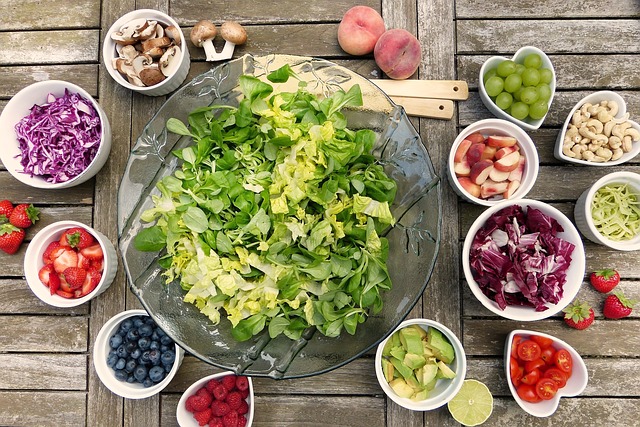
What are the benefits of a vegetarian diet?
Individuals choose to adopt vegetarianism for health, religious and spiritual reasons, and for ethical and environmental issues.
- Spiritual reasons for being vegetarian: Many religions, such as Jainism, Hinduism, and Buddhism have their roots in a vegetarian lifestyle as it supports the concept of unity with other sentient beings. Many spiritual leaders such as priests and monks refrain from eating meat believing that it is impure, unnatural, and engenders aggression. Some religions abstain from eating meat during periods of significant, annual religious events.
- Ethical reasons for being vegetarian: Animal welfare, particularly in mass production.
- Environmental reasons for being vegetarian: Many worry about how livestock production requires more land and is more water and energy intensive than other modes of farming.
- Health reasons for being vegetarian: Public opinion, backed up with research, show that vegetarians can be healthier due to a higher nutritional intake, such as fibre, vitamins and minerals. Studies show that it can reduce your risk of cancer. Also, stabilize your blood sugar level, reduce your risk of diabetes and major cardiovascular problems. It may even aid weight loss. Vegetarians on average weigh 15% less than non-vegetarians, according to Nutrition Reviews, 2006.
Is vegetarianism healthy?
Vegetarianism can be healthy if you eat real foods. However vegetarians who eat a lot of saturated fats and processed, low-nutrient vegetarian food will not benefit. There is also a danger that vegetarians who do not eat a well-balanced diet that includes wholegrains, nuts, leafy green vegetables, and proteins can be deficient in vitamin B12, iron, calcium and zinc.
When did vegetarianism become popular?
Vegetarianism has been around for centuries! It has been recorded in history across the globe, from India to Greece since the sixth century.
By 1839, the word vegetarian popped up in our vocabulary in European society, and today over three million people in the UK adopt a vegetarian lifestyle, which is around 6% of the population.
Vegetarian meat-replacement products are now widely available, including vegetarian burgers and sausages. Any good restaurant includes vegetarian options as default.
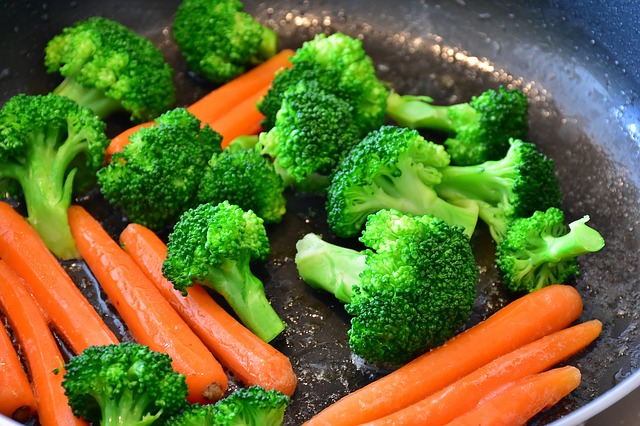
Where can I get advice about vegetarianism?
British charity The Vegetarian Society was established in 1847 to promote vegetarianism as a form of religious temperance in the modern Western world. The society continues to be a strong advocate and is a valuable source of information.
Vegan diets & veganism
What is a vegan diet?
Individuals who identify as vegan abstain from eating all animal-based products, including bee products (like honey and bee pollen) and dairy products.
More than a diet, veganism impacts your lifestyle as you may exclude animal derived ingredients or byproducts in your clothing and beauty products too. For example, avoiding purchasing leather shoes.
Discerning vegan consumers require more familiarity with product labelling as to be a true vegan you would need to exclude a range of ingredients such as gelatin, whey, cochineal, casein, lactose, egg white albumen, or carmine, isinglass, shellac, L-cysteine, fish-derived omega-3 fatty acid and animal-derived vitamin D3.
What can vegans eat?
There are four sub-types of vegan diets:
- Wholefood vegan diets, which are the most typical, is a purely plant-based diet compromising of vegetables, grains, nuts, seeds, fruits, and soya products.
- Raw vegan or thrive diets, where followers only eat raw plant-based foods or cook food at temperatures below 48°C.
- Raw til 4 diet, a low-fat vegan diet in which only raw foods are consumed before 4pm.
- Starch solution diet, a low-fat, high-carbohydrate vegan diet that focuses on cooked starches such as potatoes, corn and rice instead of fruit.

What are the benefits of a vegan diet?
Just like vegetarianism, there are many environmental and ethical benefits of a vegan diet. Vegans often advocate for sustainability and are against mass livestock production and factory farming. The vegan community frequently campaigns against fishing, hunting or trapping animals.
Health is also improved. Studies show that vegans are frequently healthier and thinner, with a lower body mass index (BMI), possibly due to the fact that a high fibre intake improves satiety.
Vegans often have lower blood sugar levels, blood pressure and cholesterol, which in turn reduces heart disease, arthritis, Alzheimer’s disease, and the risk of cancer. Veganism can improve kidney function too!
Is veganism healthy?
A vegan diet isn’t always healthy. If you opt to be a “junk food vegan”, then all the health benefits of veganism will disappear.
When did veganism become popular?
The English animal rights advocate Donald Watson, first coined the term vegan in 1944 for vegetarians like himself who abstained from eating animal and dairy products.
In 2010, plant-based eating gained momentum, and veganism has become a mainstream movement, with over 3.5 million people in the UK identifying as vegan.
Where can I get advice about veganism?
The Vegan Society, the British educational charity that was established by Donald Watson in 1944, remains a wonderful source of information and guidance on veganism.
Flexitarian, Reducetarianism & Planetary diets
What is the reducetarian (planetary) or flexitarian diet?
Flexitarian is simply the marriage of two words, flexible and vegetarian. If you are flexitarian, you will eat more plants and reduce but not completely stop your meat intake.
Many flexitarians limit processed and heavily sugared foods, opting for natural, healthier whole foods. It is not a diet per se, more a lifestyle; you are a casual vegetarian who is predominantly vegetarian but chomps on the occasional meat dish when the urge is there or at social events where meat is served.

When did flexitarian and planetary diets become popular?
Flexitarian was allegedly coined by the American dietician Dawn Jackson Blatner in 2009.
Flexitarian has increased in popularity in the last two decades. Notably, the flexitarian movement received hard epidemiological evidence at the beginning of 2019 when a group of 37 leading scientists were brought together for the EAT-Lancet Commission on Food, Planet, Health to reach a scientific consensus that defines a healthy and sustainable diet.
These scientists were looking for a diet that could work for 10 billion people, the number of people estimated to be alive in the year 2050.
They studied the most sustainable diets on the planet. The result of the commission highlighted a broken global food system.
“The food we eat and how we produce it determines the health of people and the planet, and we are currently getting this seriously wrong. We need a significant overhaul, changing the global food system on a scale not seen before in ways appropriate to each country’s circumstances.” – Professor Tim Lang, City, University of London
The published EAT-Lancet Commission report highlighted that, in order to prevent a global food crisis and improve global health:
- North Americans and Europeans need to reduce their red meat intake by about 80%
- East Asia needs to cut back on fish
- Africa needs to stop eating so many starchy vegetables, such as potato and cassava.
- Globally, we need all need to eat 15 times the current intake of nuts and seeds, and halve our food waste.
Because of this groundbreaking report, the flexitarian diet has been overshadowed with a more scientifically-backed reducetarian diet known as the planetary diet, which has set manageable, actionable goals.
The report’s authors highlight that, if the entire world adopt the planetary diet we could stop 11 million deaths that have been caused by unhealthy diets annually.
What can flexitarians and reducetarians eat?
Flexitarians may know and follow popular campaigns, such as Meatless Monday, Vegan Before Six or Weekday Vegetarian, or they may just make their own conscientious decisions on a day to day basis.
The Mediterranean diet of continental Europe and the traditional Okinawa diet of Japan probably resemble the recommended planetary diet the most.
The planetary diet is more prescriptive than flexitarianism, recommending the following portion sizes per day:
- Red meat (beef, lamb, pork): 14 g
- Chicken: 29 g
- Fish: 28 g
- Whole grains (bread, rice, pasta): 232 g
- Starchy vegetables (potatoes, cassava): 50 g
- Dairy: 250 g
- Eggs: 13 g
- Vegetables: 300 g
- Fruits: 200 g
- Legumes: 75 g
- Sugar: 31 g
- Oils: 50 g
Largely plant-based with vegetables making up more than half of every meal, the planetary diet allows for an average of 2,500 calories a day and, with no exotic ingredients needed, provides wiggle room for individual tastes and budget.

What are the benefits of a reducetarian diet?
A flexitarian or reducetarian diet is beneficial because they are convenient and flexible, and you don’t have to stick to strict rules every day. If you feel like you can’t give up meat entirely then this is a good middle-ground for you. Recipes are also simple to follow.
While the definition of flexitarian/reducetarian can vary, there are studies that substantiate that these diets share many the same health, ethical and environmental health benefits of other vegetarian diets.
Environmental benefits: A 2014 study on the sustainability of plant-based diets by the American Society for Nutrition highlights that plant proteins use 11 times less energy during their production compared with animal protein. A 2016 review revealed that individuals on a typical Western diet who then switch to a flexitarian diet are believed to decrease greenhouse gas emissions by 7%.
Health benefits: According to a 2003 report by the International Journal of Obesity, even semi-vegetarians weigh less than fully-fledged carnivores.
Are reducetarian diets healthy?
Reducetarian and flexitarian diets are healthy as long as you are eating well-balanced, nutritious meals and cut out processed foods, so that you avoid the risk of nutritional deficiencies.
Where can I get advice about reducetarian diets?
You can find a useful list of resources from The Reducetarian Foundation including access to The Reducetarian Cookbook, which is endorsed by the British singer-songwriter of The Beatles’ fame, and vegetarian advocate Sir Paul McCartney.
You can read more about the planetary diet and get inspiration and advice from the Eat Forum.
Fruitarian diets & Fruitarianism
What is a fruitarian diet?
A fruitarian diet is one that primarily focuses on eating raw fruit, making up around 75 per cent of the food you eat.
What can fruitarians eat?
Most fruitarians eat a variety of fruits alongside healthy-fat rich nuts, seeds and vegetables to ensure they maintain a healthy blood sugar level, because fruits are otherwise very sugary.
The 80/10/10 diet is a raw-food vegan diet that limits fat-rich plants like nuts and avocados, instead relying on raw fruits and dark, leafy green vegetables.
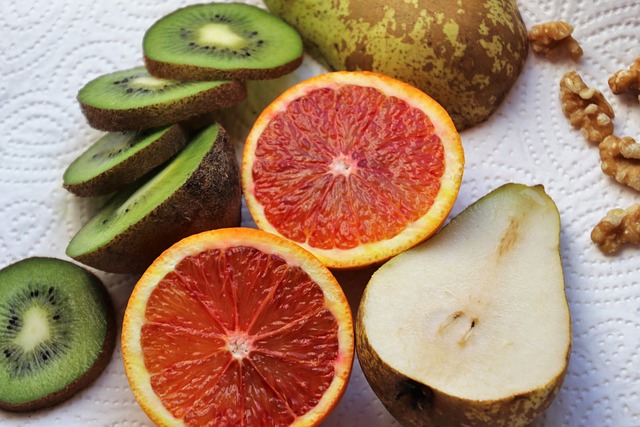
What are the benefits of a fruitarian diet?
Fruitarians advocate that the diet is as close to the natural foraging diet of our hunter-gatherer ancestors, prior to the onset of widespread agriculture.
Fruits are very nutritious due to their high vitamin and antioxidant properties, especially vitamin C and beta-carotene.
Is fruitarianism healthy?
Fruitarian diets are restrictive and so you should speak to a doctor before beginning a predominant fruit-based diet.
Some nutritionists and doctors argue that fruitarians do not receive a fully balanced diet and can it cause severe nutritional deficiencies if not managed properly. Some fruitarians use supplements to prevent malnourishment.
Signs of nutritional deficiency on a fruitarian diet include feeling tired, being anaemic, having poor metabolism and immunity, and getting brittle bones from osteoporosis due to a low calcium intake.
While you can lose weight on a fruitarian diet, if you stop the diet for any reason you may have more long-term weight gain due to the high sugar content. Sugar can also speed up tooth decay.
Fruitarianism is not suitable for diabetics or pre-diabetics or if you have any pancreatic or kidney disorders.
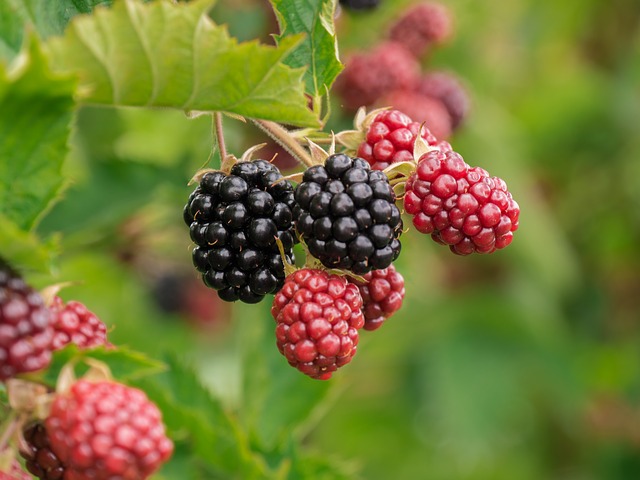
When did fruitarianism become popular?
The word fruitarian was first coined in1893 and has gained momentum from those seeking an alternative plant-based diet in the last two decades.
Steve Jobs, founder of the supertech company Apple, was an advocate of this diet.
While official figures of fruitarians are small, 600 people came together to celebrate the diet at the Woodstock Fruit Festival in 2018, which combined a plant-based lifestyle with spirituality.
Where can I get advice about fruitarianism?
Check out the membership based Fruitarian Network, which even hostsFruitDate, a platform for meeting fellow fruitarians for friendship and love.
Pescetarian diets & Pescetarianism
What is a pescetarian diet?
The pescetarian diet is one in which an individual eats fish but no other meat, focusing on a predominantly plant-based diet. This diet’s name was formed from the Italian word for fish, pesce.
What are the benefits of a pescetarian diet? Is pescetarianism healthy?
Pescetarians are in general healthy because in addition to the nutritional benefits of eating a diet rich in fibrous fruits, vegetables and pulses, you are also receiving omega-3 fatty acid, which are predominantly found in fatty fish such as salmon, and less so in some seeds, nuts and soya products. Omega-3 fatty acids are crucial for eye and brain development.
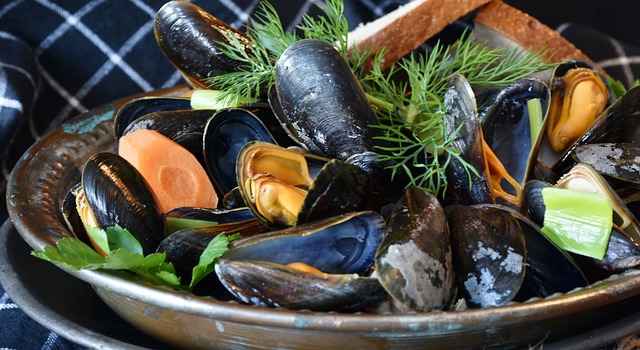
When did pescetarianism become popular?
The term pescetarianism was first coined in 1993, and a 2018 poll suggests that 4% of the UK population define themselves as pescetarianism.
Where can I get advice about pescetarianism?
You can receive advice from The Pescetarian Society, formerly known as The American Pescetarian Society, which was founded in 2015 to create a community of like-minded people.
You might like to follow the popular food blog Pescetarian Kitchen for tips and recipe inspiration.
How easy is it to adopt a vegetarian, vegan, or reducetarian diet?
If you wish to adopt a vegetarian lifestyle it is recommended that you make the change gradually, by replacing meat with more vegetables, fruits and legumes, to avoid upsetting your digestive system.
To ensure good health, a sustainable food system and a healthy planet, it’s time to re-think the way we eat. The simple fact is no-one needs meat as much as they think.
Eat your veggies with love! Real Foods provides over 12,000 healthy products including organic, gluten free, plant-based, raw and vegan foods at both its online store, or in one of its two Edinburgh-based shops.
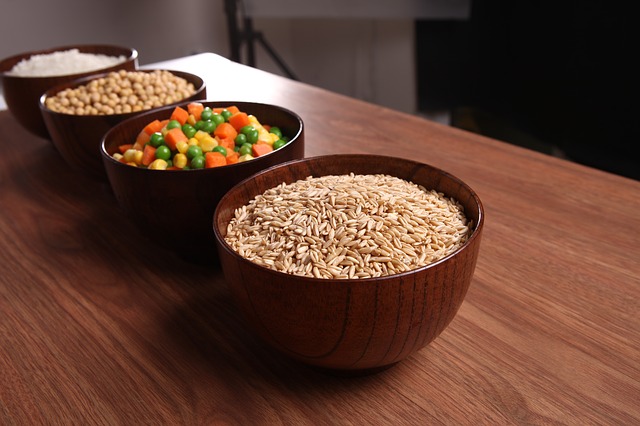
Author: Jen Marsden







